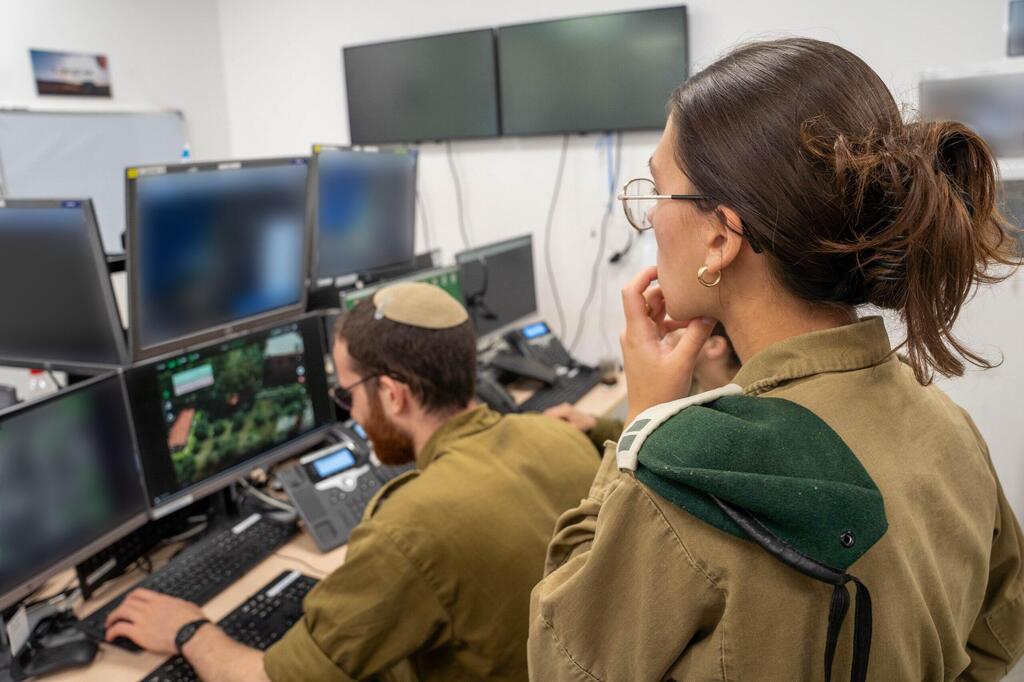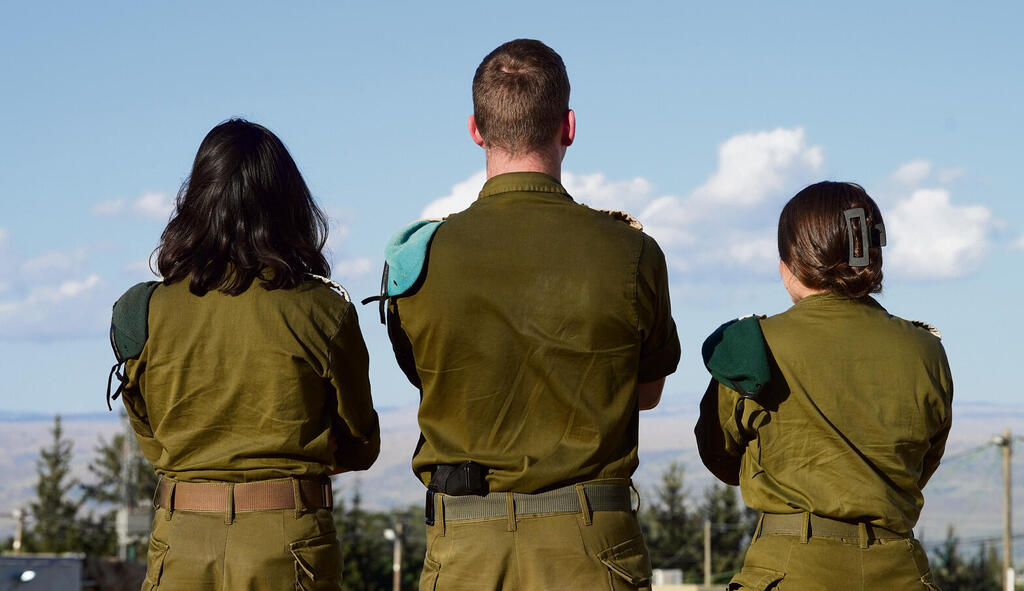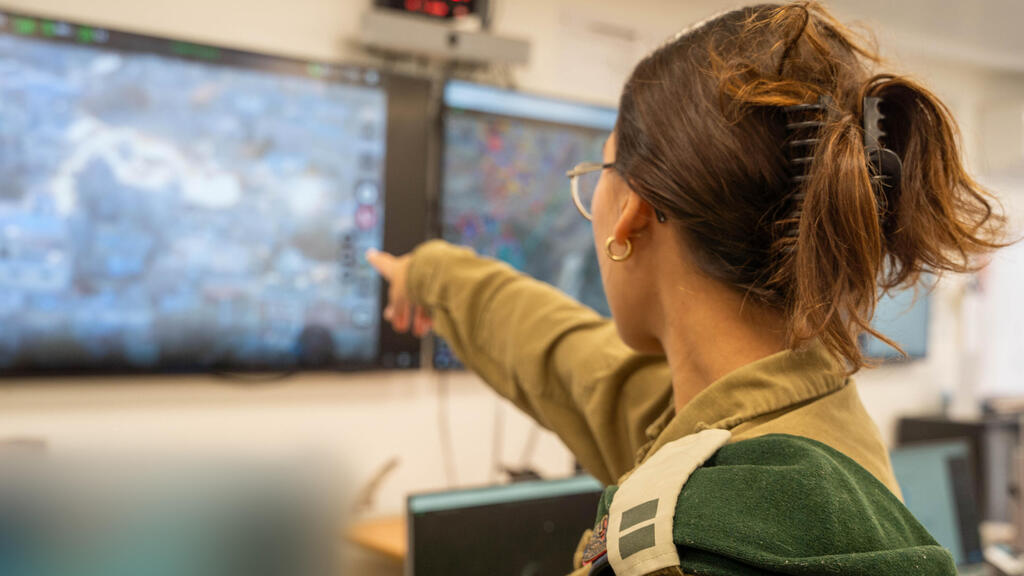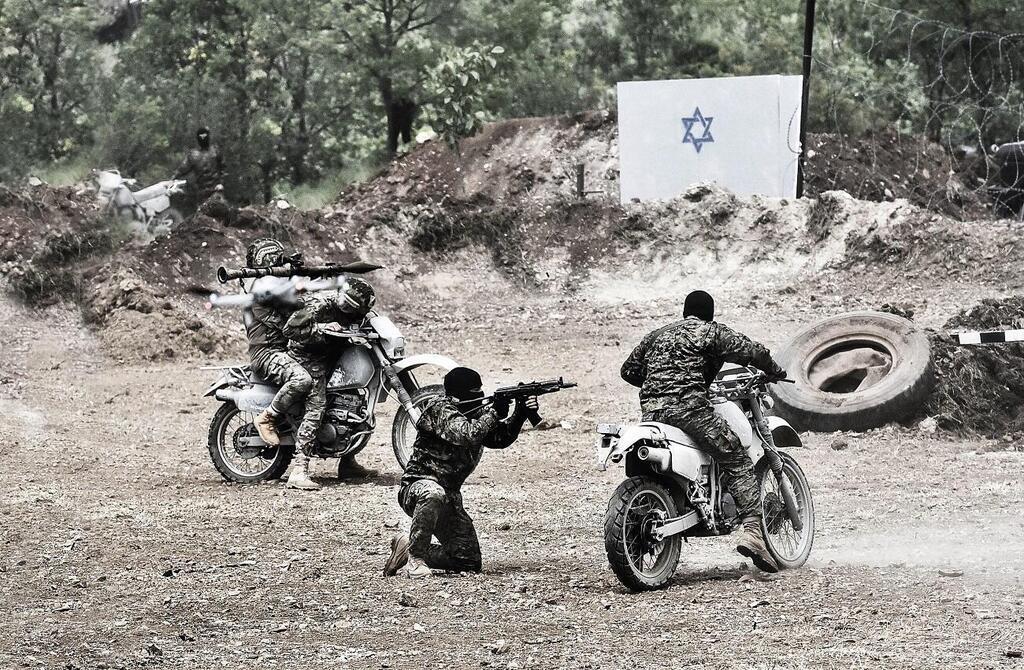Getting your Trinity Audio player ready...
The tension in the control car of the 91st Division's fire center was palpable. Officers were glued to their screens, watching the six villages captured on camera across the border. Even the loudspeaker alerts about drone infiltrations and orders for all soldiers to enter the shelters couldn't divert their gaze from the illuminated wall in the fortified chamber.
Captain M., commander of the Fire Canopy, issued final instructions to the pilots over Lebanon. Each pilot confirmed launching their ordinance at designated targets. The fiery explosions hit the terrorist targets sequentially within 90 seconds. A collective cheer of "Yes!" resonated in the room—a routine moment, yet the satisfaction of their success never fades.
In its routine end-of-day summary, the IDF reported on recent Air Force operations targeting terror hubs in southern Lebanon. These targets now had a new significance for me. While the specifics of the targets engaged during my time in the strike car are confidential, Captain M. revealed they included Hezbollah command centers, weapon storage facilities and hideouts. "Ultimately, in these strikes, the highest aspiration is to kill as many Hezbollah operatives as possible," he says.
Each concentrated strike can stretch over long hours or conclude within half an hour from the moment the green light is received until air and ground forces strike. "There are strikes that only the chief of staff can approve, some that the regional commander can approve and some that the division commander can approve. We need to wait here for the necessary approvals and ensure the target is hit to the highest standard with the appropriate munitions," explains Captain M.
We meet in the secret compound where the division headquarters is situated on the Lebanon border. Nearby, infantry forces are training, preparing for the next phase of their mission. The army isn't waiting to see what will come of the diplomatic efforts to deal with Hezbollah; they are training to achieve security through firepower and the spirit of their fighters.
Everyone I met here declares that above all, they want to bring back the tens of thousands of northern residents to their homes and communities from which they were uprooted over seven months ago and to restore security to over 100,000 residents, most of whom remained in their homes and have been living in a war-torn and abandoned area since.
Unlike Hezbollah's attacks, which mainly target IDF outposts and often civilian targets, the IDF adheres to a combat code that only attacks and destroys targets after they have been clearly identified as used by the Lebanese terrorist organization.
One of the key officers in the efforts to locate and destroy targets is Lieutenant R., head of the Target Team. At 22 years old, she lives in Kibbutz Dan near the Lebanon border, from which she was evacuated along with her family and relatives in the surrounding communities. Since October, she has been staying at her grandparents' house in Rosh Pina. For her, every Hezbollah terrorist taken out is a personal closure.
Every morning, 91st Division Commander Brigadier General Shay Klapper asks her how many terrorists she ensured were killed in the past 24 hours. "My goal every day is not to eliminate the senior figures everyone talks about, but the people who are shooting at Metula, Avivim etc. We are looking for the anti-tank missile squads and the enemies roaming our villages," she explains.
Lieutenant R.'s safe place has turned into an exposed firing range for Hezbollah during a war that hasn't officially started yet. She is familiar with the sentiments of the residents waiting for a resolution and suffering from the extensive damage caused by Hezbollah's fire to the neighboring communities and cities.
Lieutenant R. claims that despite the public perception that IDF mainly attacks in response to Hezbollah fire, "We are not waiting to be hit first. There are days when they haven't fired anything at us, and we attacked 12 targets. We have response targets and strategic targets, and we act according to the situation and evolving needs."
The images of destroyed homes in Metula, Kiryat Shmona, Avivim and others are frustrating failures for R. and her colleagues, even if they have managed to significantly harm the terrorists who are probably dug in their ratholes, fearing IDF reprisal.
"We create targets in real-time," she says. "It's no secret there was a large number of Radwan operatives sitting on the fence. Now they hide 23 hours and 40 minutes a day. Then they come out for 20 minutes, shoot and go into hiding again. The operatives left on the front are a trickle compared to what was here in routine times. They are very afraid, so they come out, hide, shoot and hide again."
According to her, "It's not that the State of Israel remains constant reactive mode. If an anti-tank missile hits Metula and a house is slightly damaged or burned, houses on the other side are on the receiving end of our bombs. If you look at [the southern Lebanon of village] Kfarkela, it doesn't look as it did when the residents left their homes in Metula in October; it looks much worse than how Metula looks today. On their side, many more houses have been hit by the battalions on the front line. They won't regain normalcy anytime soon."
IDF uses the days that have stretched into weeks and months for training, learning and refining the ground offensive plan that aims to destroy Hezbollah's capabilities on the border. "We are in a learning competition with them," explains Lieutenant R.
Captain M., the fire center commander, adds, "We are trying to make our entry angle into combat better and refine it so that the benefit of said maneuver will be higher. We want to ensure that every bomb that falls here lands on a valuable target. Hundreds of people are working from dawn to dusk to 'criminalize' as many targets as possible and build a larger target bank ahead of the opening. I am responsible for all the flights that go out from here, and every week I reapprove the plans because we have improvements and efficiencies, and we keep looking for ways to make things work better."
Do you find an advantage during these waiting periods?
"No. It's very serious that we are in this situation. True, we are learning a lot about the enemy, and he is learning about us. The significant advantage is that we have time to prepare and get to know our enemy better and refine our abilities."
Captain Y., the division's intelligence officer, shares, "One of the first questions my friends asked me is how such tactical and seemingly specific work affects the current reality, but we see how much the changing sector affects defense capabilities, and it is clear to us that it is very painful for the other side. The sense of meaning here is crazy, and the recognition that you are part of something big whose mission is to bring the residents of the north back home."
And when that goal is constantly in front of the eyes of the division's officers overseeing the Upper Galilee area, they lament every bit of damage within our territory, but in their view, all this has a necessary purpose. "Beyond readiness for war and impending victory, we ensure what happened in the south on October 7 doesn't happen here," says Lieutenant R.
"I am very pained by what is happening here. I haven't slept in my bed at home since September, and I, personally, alongside my colleagues here and all the forces, understand that this is another stage in the counteroffensive to prevent infiltrations and shooting attacks. I don't know about agreements and moves being tried on the civilian levels, but it is clear to me that we must prepare for war and remove the threat. These are two efforts we are making here in parallel vectors."







